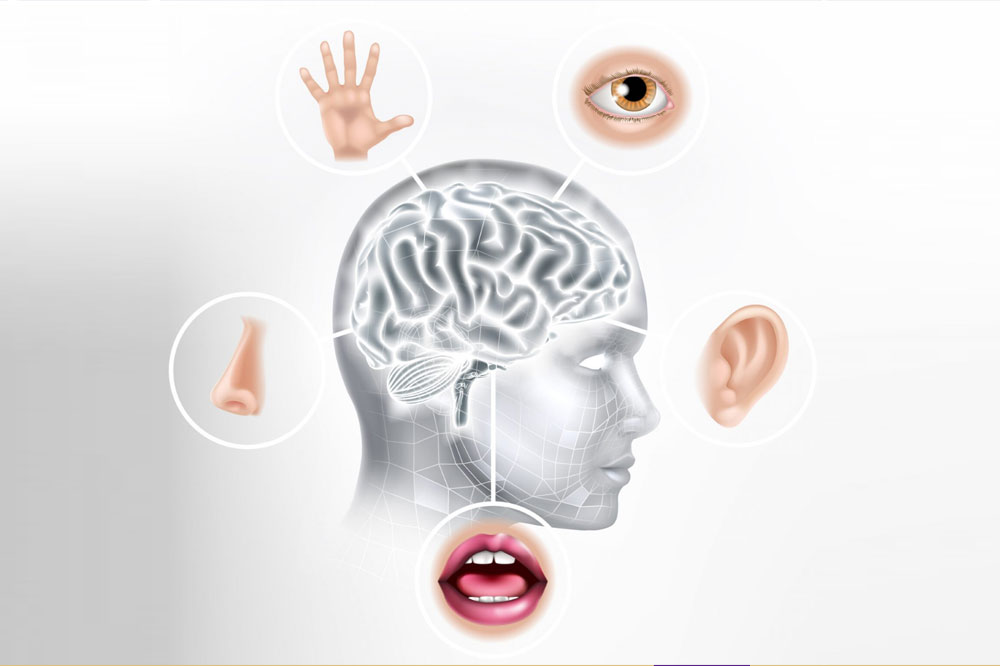Our senses play a huge part in our everyday life, yet we often take them for granted. Sometimes, it’s only when we’re unwell and one of our senses is temporarily cut off (for instance, if we have a blocked nose), that we finally notice and appreciate it.
Each of our senses is powerful and unique, and can bring feelings of relief and safety – like that good feeling we get after experiencing something comforting, or joyful, or pleasurable, which leads our bodies to release “happy chemicals” (like oxytocin, serotonin, and dopamine), reducing our heart rate and lowering our stress levels.
In my therapy I often encourage clients to adopt sensory practices for grounding and self-soothing, to help to reduce anxiety, promote mindfulness, and regulate emotions. Here are some simple suggestions about how we can generate more sensory awareness in our everyday lives:
Sight
Different colours can have outstanding benefits – blue can evoke a sense of productivity and safety, while purple is thought to encourage creativity. Start to mindfully pay attention to the colours around you. Observe and describe what you see. Consider colour, shape, texture, and notice how you feel. Stay in the moment. At home, keep the lighting soft and warm. Maybe light a candle, or purchase a lava or salt lamp as they can create a calm mood for rest and sleep.
Sound
Listening to naturalistic sounds, along with being in ‘green’ environments, is linked to relaxation and increased feelings of wellbeing. Listening to the sounds of ocean waves, streams, birdsong, and thunderstorms, can help to relax the nervous system. Try taking 10–15 minutes out of your day to listen to a natural sound of your choice, and home-in on all the different elements within the sound. Head out into the wild or keep it cosy at home – there are plenty of natural sound clips to stream or download on YouTube, Spotify, and Apple Music (there are some links on my resources page).
Smell
Aromatherapy is the practice of using essential oils for an array of wellbeing purposes. Essential oils such as lavender, vanilla, ylang-ylang, and clary sage may help with anxiety and insomnia, so you could try putting a few drops on your wrists or pillow (mix them with a carrier oil if putting directly on the skin). Rosemary, citrus, and geranium can help to lift your mood, or can be used when you need to focus. Aromas can be highly emotive and breathing in a familiar smell can bring you back into the present moment. Maybe carry a scent in your bag so that it’s there when you need it.
Taste
Eating food while watching TV is a regular practice for many of us. But sometimes we don’t notice what we’ve eaten, or when we’re full, because we’re distracted. Try to replace this mundane practice with mindful eating. Pay attention to what you’re consuming – the colours, flavours, textures, and sensations. Let your taste buds engage with every mouthful. Another tip to use if you’re experiencing a heightened moment of anxiety is putting a strong taste in your mouth (such as a cough sweet or liquorice). Your attention will go to the strong taste rather than the anxiety you feel.
Touch
From birth, we have a desire for social and physical contact and connection. The sensation of being hugged or held feels good. But, when others aren’t around, how can we replicate this? A daily practice of holding or squeezing our hands, our arms, or our face, brings a sense of security and self-validation. Another way of generating this feeling is by moisturising your body. Focus your attention on massaging the cream into each part of your skin and notice how you feel while doing it. The sense of being able to touch or hold ourselves can help if we experience a panic attack, because as we touch or hold ourselves, we are reminded that we are alive, and safe in our body.




